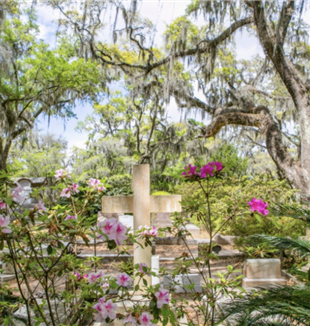
Forging Bonds in Christ’s Fractured Body
Stephen reflects on the power of ecumenism and the hospitality of a thoughtful Episcopal community.My entry back into the Catholic Church came on the heels of my exploration of a variety of Christian denominations and conversations with their adherents. After understanding that Christ wanted me to follow him in the Catholic Church, I prayed that my positive experiences with other Christians would remain a part of my journey – though I had no idea what that would look like.
I had considered pursuing a masters in ecumenical and interreligious studies. But that changed after having a conversation with my friend Fr. Paolo, who suggested that I instead study Catholic theology, and after having “planted my roots” firmly in my own tradition, then set out to engage in ecumenical and interreligious dialogues. He also recommended I look into Father Giussani’s engagement with other denominations and religions – namely his work on American Protestant theology, and his relationship with the Buddhist monk Shodo Habukawa. In the coming years, I grew increasingly grateful for my friend’s advice, realizing how difficult it is to engage in meaningful dialogues of any kind without a strong foundation of one’s own.
Further, I found Fr. Giussani’s approach to such conversations refreshing. Unlike those who went to extremes of either ignoring the differences between religions in the name of a naive “least common denominator” approach or of condemning other religions wholesale, Fr. Giussani aimed to look at the totality of factors – being unafraid of acknowledging points of both commonality and disagreement. But more importantly, Giussani was more interested in seeking truth with people of other faiths – which consisted of sharing life together instead of merely talking about ideas.
As much as I had appreciated that fact that Communion and Liberation as a whole is very much open to engaging in such dialogues and relationships – we often have people of different denominations and religions visit our school of community, and the New York Encounter frequently hosts speakers of a variety of faith traditions – I still felt that more could be done to carry on Fr. Giussani’s ecumenical attentiveness.
Thus, my excitement when our friends Michele and Francesca gave a presentation on Fr. Giussani’s writings about the Protestant theologian Reinhold Niebhur, with whom he both disagreed on several matters, and in whom he found profound inspiration. I shared my passion for these questions and my desire to live them more seriously with Michele, who invited me to offer this desire for ecumenical dialogue and to ask Christ to fulfill it.
Not long after, I received an invitation from an Episcopalian priest who had come across my writing and podcasts to come give a talk at his parish in Savannah, Georgia. As soon as we agreed on a date and topic, I booked my trip to the Peach State.
After Fr. Jonathan picked me up, we shared our faith journeys with each other over dinner. I learned that he also made his way around several Christian denominations – on top of touring with a rock band – before converting to Anglicanism and discerning a call to the priesthood. I was amazed by how freely we were able to discuss theology, culture, and our personal experiences. He then took me to the house of a parishioner who graciously welcomed me to stay with them.
The morning before my talk, I attended all of the parish’s services, during which I was fascinated by the reverence of the liturgy and the beautifully poetic style of English used in it. After listening to the sermons and meeting some of the parishioners, I made some last minute adjustments to my speech, wanting to cater it to the particular audience with whom I’d be speaking.
I was blown away by the sincere and thoughtful questions that the community asked after my talk entitled “The Incarnation in an Age of Simulation,” which focused on what our belief in Christ’s coming in the flesh has to offer a cultural moment defined by simulation (artificial intelligence, social media, etc.) and polarization. Perhaps the highlight of the night was getting invited for drinks afterwards by a young couple who has recently converted. I couldn’t believe how openly we were able to discuss our experiences of faith, our disagreements about particular theological doctrines, cultural politics in the North versus the South, and pop culture with people I had just met.
Fr. Giussani once wrote that “there exists no act greater than hospitality: from a radical hospitality, like adoption, to a simple one, like offering lunch or shelter to someone passing through town for a night.” On my flight back to New York, I was grateful for the miracle of hospitality, for the miracle of forging bonds within the fractures of Christ’ divided body, and for having friends who encourage me to risk on my desires.
Stephen, Brooklyn, NY